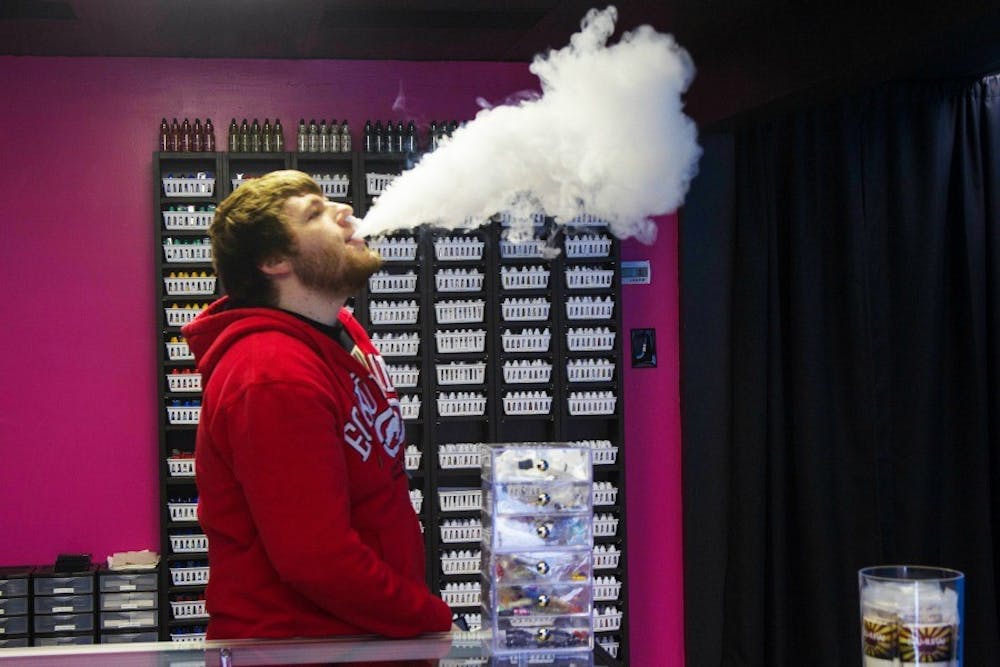Photo by Phill Arndt
By Sarah Knepp, For The Miami Student
With the opening of Studio Vapes, a new vape shop Uptown, the popularity - and acceptance - of "vaping" at Miami is growing.
And with this rise in popularity, the university policy regarding electronic cigarettes is adapting well.
E-cigs, a smokeless, electronic "cigarette" with vapor and nicotine, emerged in 2003, and now millions of Americans use them, including many Miami students.
Despite being less harmful and containing fewer chemicals and toxins than traditional cigarettes, the potential (but unconfirmed) health risks involved with the use of e-cigs led Miami University to change its policy regarding tobacco use in 2013. The new policy prohibits the possession and use of all forms of tobacco on campus, including vapors and e-cigs.
Leslie Haxby McNeill, assistant director of Student Health Services, was one of the main proponents to have all forms of smoking and tobacco banned from use.
"We don't know the long-term effects, and we don't know what the second-hand effects are," McNeill said.
One of her main concerns with e-cigs is that, like regular cigarettes, they still contain nicotine.
"With nicotine, it doesn't matter how you get it," McNeill said. "It's still a highly addictive substance and is bad for your body."
Studio Vapes has an array of options for e-cig users, including 200 flavors and adjustable nicotine levels for each blend. This adjustable nicotine can help lessen the negative effects of smoking e-cigs, especially addiction.
"You can get zero nicotine - no addiction," Ian McLaughlin, one of the owners of Studio Vapes, said in a previous interview with The Miami Student.
The lower nicotine levels can also aid addicted smokers in quitting their habits, McLaughlin added.
Student Health Services has noted that the implementation of a campus-wide ban has also helped smokers quit, and that students are, in general, smoking less. For assistance, Student Health Services can prescribe quitting aids, like nicotine patches, to students that do need help controlling their addiction.
These aids come at a discounted or no cost to members of the Miami community and can be either prescribed or simply provided by Student Health Services, depending on the severity of the addiction problem.
As for enforcement of the smoke- and tobacco-free policy, students admit it is pretty lax, even in residence halls. But for other students, it's part of their job to ensure students do not have or use smoking materials.
Maria Latta is a junior and Residence Assistant on campus. She help keeps the campus tobacco-free as part of her job, and is required to intervene when she sees residents using tobacco.
"I'm supposed to write an incident report, and let OESCR [Office of Ethics and Student Conflict Resolution] take it from there," she said.
According to the Code of Student Conduct, OESCR provides violators access to the cessation programs offered by Student Health Services and, if the problem persists, reprimands and sometimes even removes students and employees from Miami's campus.
But McNeill said that, overall, most people are respectful of the policies to not smoke on Miami's campus.
"I think a lot of students want to be healthy," McNeill said. " It's sort of a community norm. Most people don't smoke and most people don't use tobacco."

